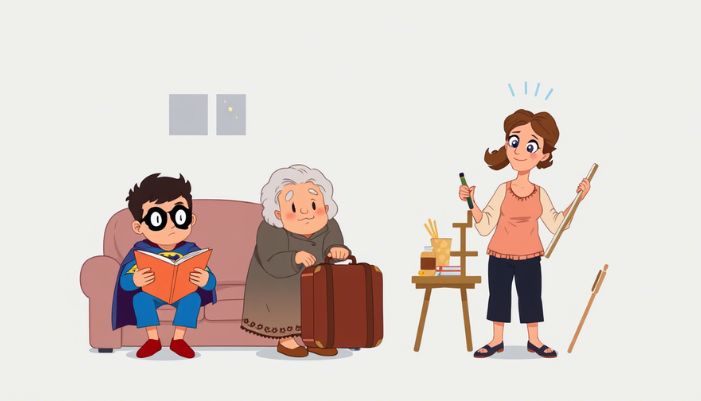We all live with multiple stories. Some are happy. Some are sad. Others are just everyday moments. But all of them help shape who we are.
A story doesn’t have to be big to matter. A chat with a friend, a quiet walk, or a mistake you made can be part of your story. These small moments help build your life. And each one teaches something.
This post will show you why these stories are important. You’ll learn how to tell your stories better, how to listen to others, and how stories can change the way we see the world.
Why Many Stories Matter
You Are More Than One Story
You’re not just your job. You’re not just where you were born or who raised you. You’re a mix of many stories.
For example, maybe you’re a student, but you also help take care of your family. You like music, write poems, and love dogs. These are all parts of your life story.
No one is just one thing. When we understand that, we start to see people in a new way.
Stories Bring Us Together
When we share our stories, we connect. You might meet someone very different from you. But once you hear their story, they feel closer.
Think about a time someone told you something real about their life. Did it change how you saw them? Stories help us care more and judge less.
In a world full of fast scrolling and short posts, stories make us slow down and listen.
How to Tell a Good Story

Start Small and Honest
Big stories are great, but small ones are powerful too.
Try this:
- Think about a moment that made you feel something.
- Ask: What happened? Why did it matter to me?
That’s the start of a real story.
You don’t need to use fancy words. Just speak from the heart.
Use Simple Structure: What, Why, Then What?
A good story has a beginning, middle, and end.
Beginning: Set the scene. What’s going on?
Middle: Share the problem or change. What happened?
End: What did you learn or feel?
It can be short and sweet. It just needs to feel true.
Create Curiosity
A little mystery helps. Try opening with a sentence that makes people want to know more.
Example:
“I didn’t expect to cry in the middle of the grocery store.”
You’d probably want to read what happened next, right?
The Stories We Tell Ourselves
What Are You Saying Inside?
We all have inner voices. Sometimes, they tell us stories about who we are.
“I’m not smart enough.”
“I always mess things up.”
“I have to be strong all the time.”
These are stories too. And we might be repeating them without even thinking.
You Can Change the Story
If a story in your head makes you feel bad, it’s okay to rewrite it.
Instead of saying, “I failed,” you could say, “I tried and learned something.”
Changing how you tell your story doesn’t mean lying. It means looking at things in a way that helps you grow.
Writing With Many Stories

More Than One Plot Makes Things Real
In books and movies, the best stories have layers. There’s the main story, but there are also side stories. These show who the characters really are.
Think of a superhero who’s also shy in real life. Or a grandma with a hidden past. That’s what makes the story rich and real.
Build Your Characters With Layers
Want to write better characters? Give them more than one side.
Example:
Lena is a teacher. She’s calm and helpful. But at night, she paints wild, messy art that she hides in her closet.
Now you know there’s more to her than what others see. That’s what makes a good story.
Stories That Changed the World
Real People, Real Impact
Some stories go beyond one person. They help change the world.
Malala Yousafzai shared her story about fighting for girls’ right to learn.
The #MeToo movement began when people told the truth about abuse. Their stories gave others the strength to speak up.
One story can make others feel seen. Many stories can spark change.
Brands Use Stories Too
Even companies use stories. Instead of just saying “Buy this,” they share how their product helps someone.
For example, a sneaker brand might tell the story of a runner who trained hard and made it. That makes people feel something—and makes them trust the brand.
You Have Stories That Matter

You Don’t Need to Be Famous
You don’t need a huge story to have something worth telling. Your story matters.
Maybe you helped a friend. Maybe you stood up for yourself. Maybe you failed and kept going. That’s brave. That’s worth sharing.
Telling your story can help others—and it can help you, too.
Keep Writing, Keep Living
Life keeps giving us stories. You don’t need to write a book right now. But keep track of the little things.
Write in a notebook. Talk to a friend. Or just think about your day and what it meant.
Every story adds to who you are.
Frequently Asked Questions
Final Thoughts
Our lives are full of multiple stories. Each one helps us learn, love, and live better. They connect us to each other and to ourselves.
You don’t have to write like a pro. Just speak from the heart. The more stories you share, the more people you’ll touch—and the more you’ll understand your own journey.
